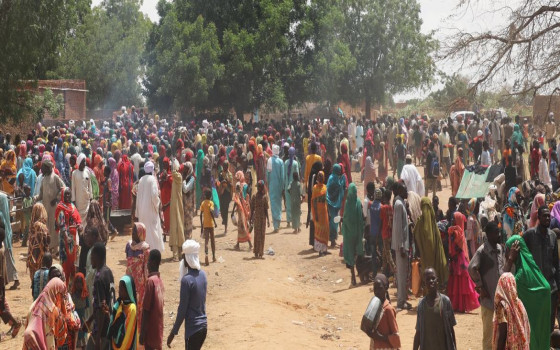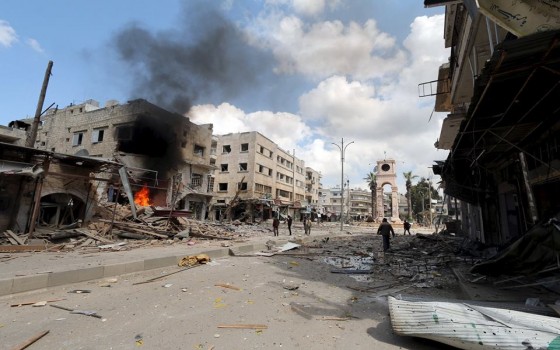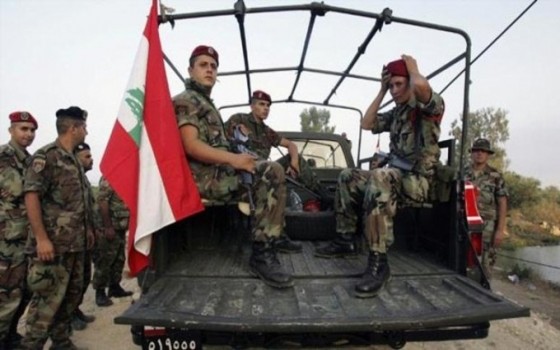
Sudan needs support. More than a million displaced people have returned. Khartoum expects the arrival of more than two million before the end of the year. Most of them are from Egypt and South Sudan.

- Europe and Arabs
- Sunday , 27 July 2025 10:13 AM GMT
Khartoum - Geneva: Europe and the Arabs
Despite the escalating conflict in Sudan, pockets of relative safety have emerged over the past four months, prompting more than one million internally displaced persons (IDPs) to return home, according to the International Organization for Migration (IOM). Some 320,000 refugees have returned to Sudan since last year, mostly from Egypt and South Sudan, to assess the situation before making a final decision to return home. According to a UN news bulletin we received, which added that during a press conference held in Geneva, IOM Regional Director Othman Belbeisi spoke from Port Sudan, saying: "The majority of returnees have gone to Gezira (state), approximately 71%; then to Sennar (13%); and, so far, to Khartoum (8%)."
Most of the IDPs are from the Sudanese capital, Khartoum. In this context, Mr. Belbeisi expected "about 2.1 million IDPs to return to Khartoum by the end of this year, but this depends on many factors, particularly the security situation and the ability to restore services in a timely manner." A Protracted War
Since the current conflict began in April 2023, more than 12 million people have been forcibly displaced, including nearly five million who have sought refuge in neighboring countries, making Sudan's war the largest displacement crisis in the world.
The Sudanese army took control of the greater Khartoum area, including the capital, in May of this year, after a protracted battle against the Rapid Support Forces in the western and southern regions. The brutal conflict has pushed parts of the country into famine.
During a recent visit by UN representatives to Khartoum, an elderly man approached them to emphasize that their needs were simple: "Food, water, and healthcare. Education—this is the future of our children, and we urgently need to invest in it."
Rehabilitating the Capital
A massive effort is underway to support those returning to Khartoum. It's a race against time to clear rubble, provide basic services like clean water and electricity, and strengthen the capacity of health facilities to prevent the spread of deadly diseases like cholera. UNDP Resident Representative in Sudan, Luca Renda, told reporters that approximately 1,700 wells need rehabilitation and electrification, and "solar energy is an excellent solution in this case." He said the program aims to develop long-term solutions for those displaced by the war to secure livelihoods and basic services.
He added, "There are at least six hospitals that need urgent rehabilitation and repair, in addition to a number of primary healthcare centers."
He also confirmed that transportation and cash assistance are being distributed to purchase food, hygiene supplies, medicine, and clothing for the most vulnerable arriving in the border areas.
Mr. Renda emphasized that mine clearance is another pressing challenge facing the rehabilitation and reconstruction of the capital. "Even in our office, we have found hundreds of unexploded ordnance," he said.
He added that there are hundreds of thousands, if not more, of unexploded ordnance in the city, confirming that the local mine action authority, with support from the United Nations Mine Action Service (UNMAS), has already begun clearance.
It will take years to completely clear the city of the deadly remnants of war. The United Nations Development Programme estimates that UNMAS will need at least US$10 million to deploy the required number of demining teams to work in partnership with national authorities and educate the population about the dangers of unexploded ordnance.
As of July 21, 2025, the United Nations and its humanitarian partners had received only 23% of the US$4.2 billion requested to provide life-saving assistance to nearly 21 million people at risk inside Sudan.
Displacement Crisis Continues
Despite recent returns, hundreds of people continue to flee daily—both within Sudan and across its borders—due to the ongoing conflict. This is particularly true in the Darfur and Kordofan regions, according to UNHCR.
Mamadou Dian Balde, UNHCR's Regional Refugee Coordinator for the Sudan Crisis, said that the number of refugees from Darfur alone has reached more than 800,000 since the beginning of the conflict, and this number is continuing to rise. According to UNHCR, $1.8 billion is needed to support the 4.8 million people who have fled Sudan to neighboring countries, but only 17% of this funding has been received.
Mr. Balde emphasized that refugees still need "greater support from us" and peace to end "this brutal conflict."












No Comments Found